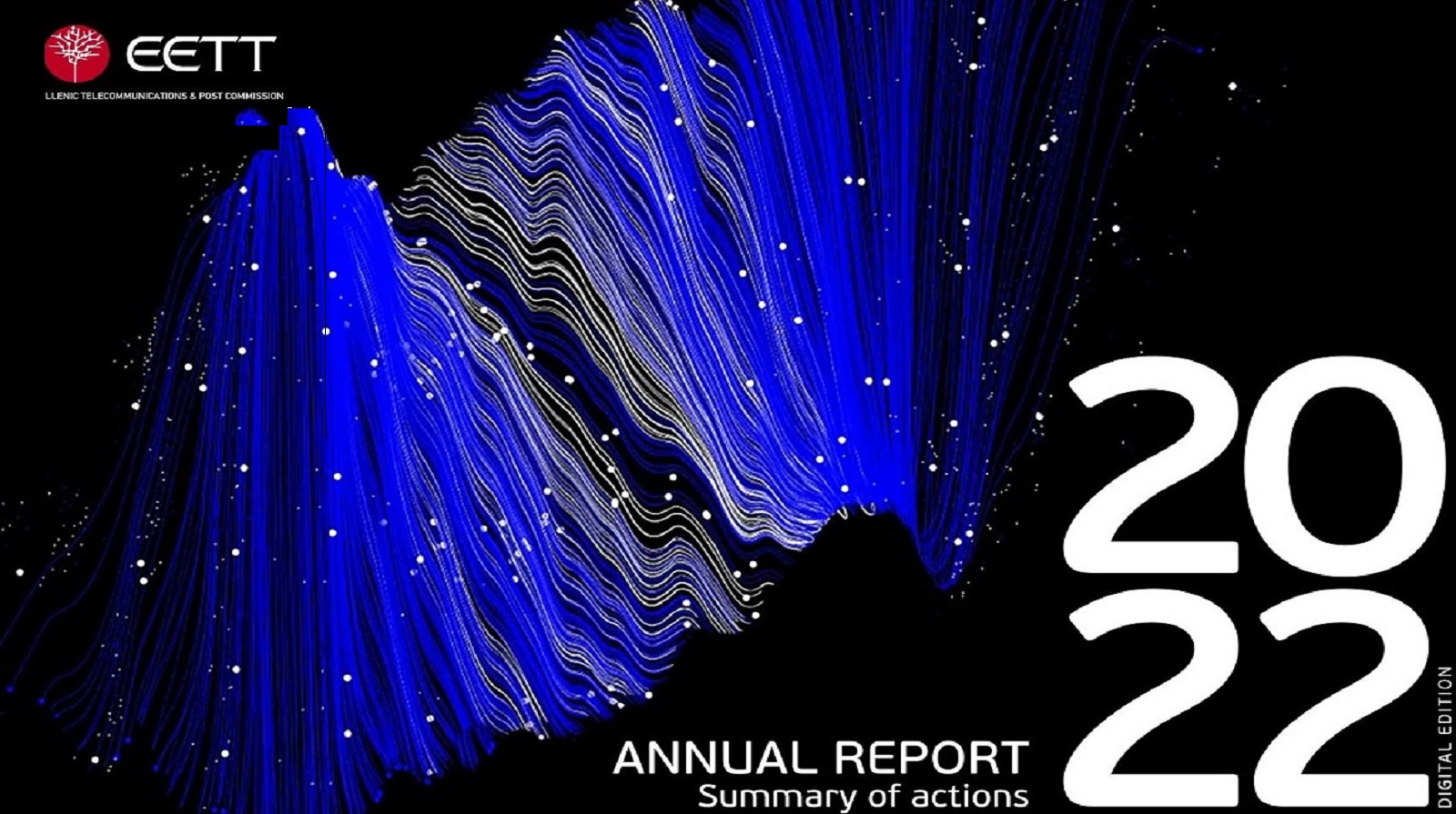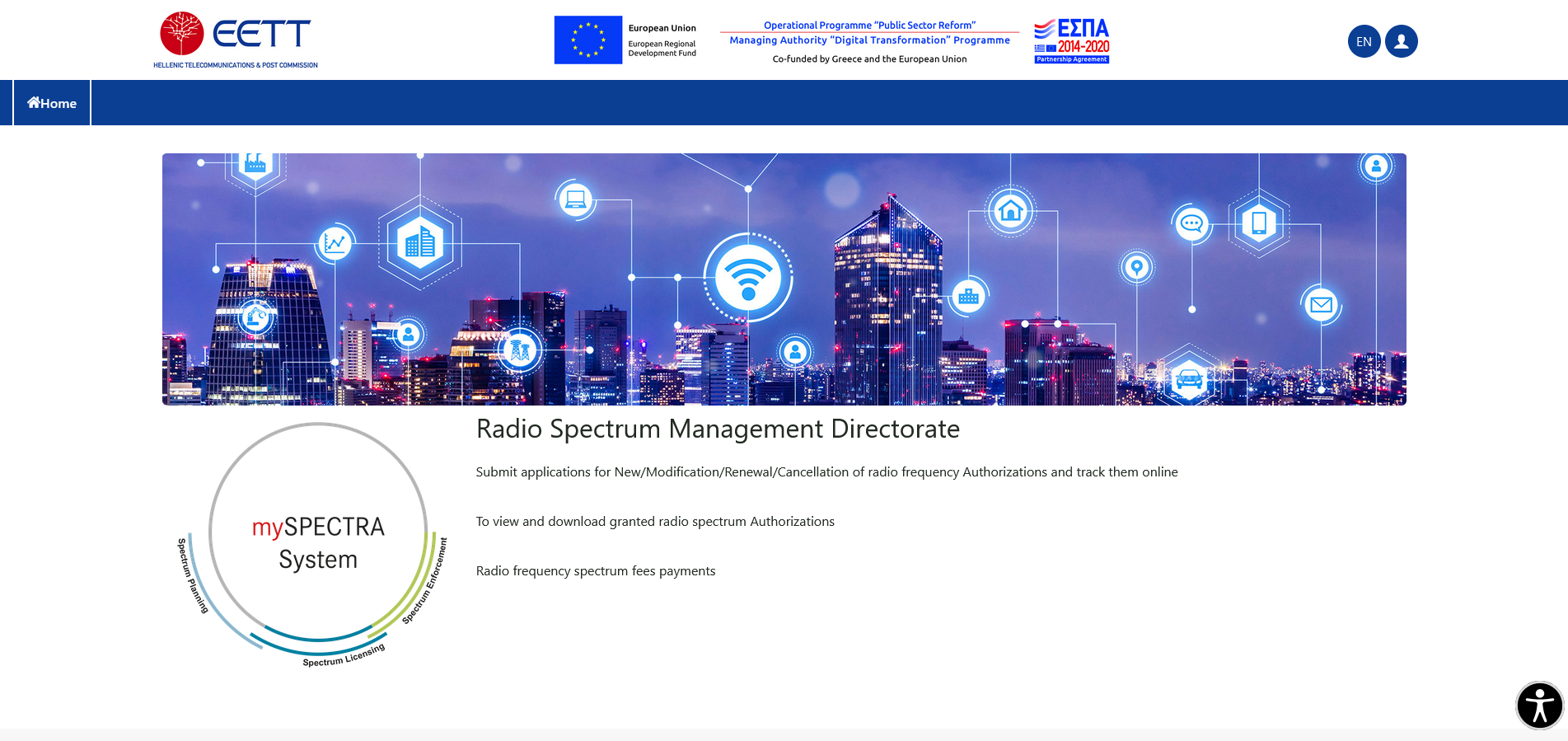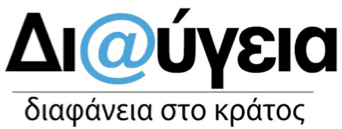EETT has the following competences in the electronics communications sector (Law 4727/2020, Article 113) pertaining to the provision of electronic communications networks and services, associated facilities and services:
- It exercises all responsibilities relating to General Authorizations and issues Regulations, based on which it regulates all relevant issues.
- It maintains and manages the Registry of electronic communication network and service providers.
- It manages the National Numbering Plan.
- It assigns, reserves, revokes or restricts the rights of use for numbers or number series.
- It regulates issues regarding number portability and monitors the compliance of providers with the regulatory framework.
- It guarantees the implementation of national and EU competition rules [Law 3959/2011, Articles 101/102 TFEU and Council Regulation (EC) No. 1/2003].
- It regulates issues regarding the definition of relevant markets, products or services of electronic communications and carries out the analysis of the effectiveness of competition. It also regulates any issues regarding the designation and obligations of providers with Significant Market Power in the above relevant markets.
- It exercises responsibilities regarding the provision of Universal Service and submits proposals to the Minister of Digital Governance.
- It regulates issues concerning the access and interconnection of providers.
- It issues Codes of Conduct about the provision of electronic communications networks and services.
- It regulates matters concerning consumer protection in the electronic communications sector, issuing relevant guidelines and recommendations.
- It supervises and audits the providers of electronic communications networks and/or services and imposes sanctions.
- It supervises and monitors the implementation of obligations of wholesale access and access to associated facilities, price control and cost accounting, publicity and non-discrimination obligation regarding wholesale access.
- It issues proposal or opinions on the issuance of regulatory acts.
- It conducts hearings to ascertain infringements of legislation on electronic communications.
- It grants or revokes rights of use for radio frequencies and conducts tender procedures for the granting of these rights.
- After a reasoned request and within the limits of its competence, it may ask undertakings active in the electronic communications sector to provide all necessary and relevant information.
- It assigns and manages domain names under [.gr] and [.ελ] and is also responsible for issues pertaining to [.eu] domain names.
- It regulates all matters relevant to electronic signatures and supervises all operators concerned.
- It exercises the powers and tasks of the supervisory body of trust services.
- It regulates matters concerning the technological neutrality of networks.
- It issues decisions to regulate matters pertaining to Internet addressing.
- It maintains a file of all necessary data that provide an overview of the electronic communications market in Greece.
- It conducts, ex officio or upon a request by the Minister of Digital Governance, public consultations about issues that fall under its competences.
- It cooperates with the Body of European Regulators for Electronic Communications (BEREC), in which it represents Greece, as well as with other National Regulatory Authorities (NRAs) and bodies at European/international level.
- It notifies to the European Commission, NRAs of other Member States and BEREC the draft measures within the limits of its competence which are subject to the notification procedure.
- It resolves disputes between undertakings of electronic communications networks/services or between providers and other undertakings.
- It may conduct geographical surveys of the range of electronic communications networks capable of delivering broadband services.
EETT is the National Dispute Settlement Body for disputes arising between providers of electronic communications networks or services, or between such undertakings and other undertakings benefiting from obligations of access or interconnection or between providers of electronic communications networks or services and providers of associated facilities.
A particular category of disputes concerns those disputes arising from the denial of granting rights of way, as well as fees due for granting and use of rights of way by operators having the relevant obligation.
EETT is appointed as a National Dispute Settlement Body competent to implement legislation on measures to reduce the cost of deploying high-speed electronic communications networks.
To initiate a resolution procedure, either party is required to submit a request to EETT. The procedure will be concluded within 4 months, with the issuance of a binding decision for both parties. EETT may decline to resolve a dispute where other mechanisms, including mediation, exist that, in the opinion of EETT, would better contribute to resolving the dispute in a timely manner. In this case, it informs the parties concerned in the shortest possible time frame about its decision, providing them with the reasons on which the decision is based.
The dispute settlement procedure does not preclude either party from filing a complaint for infringement of legislation on electronic communications or of Law 3959/2011 (Official Gazette 93/Α/20-04-2011) regarding the existence of an infringement of competition rules or from applying for injunction measures before EETT and/or bringing an action before competent courts. Furthermore, the decision of EETT on the settlement procedure constitutes an administrate act, subject to appeal, as provided for in the relevant legislation.






